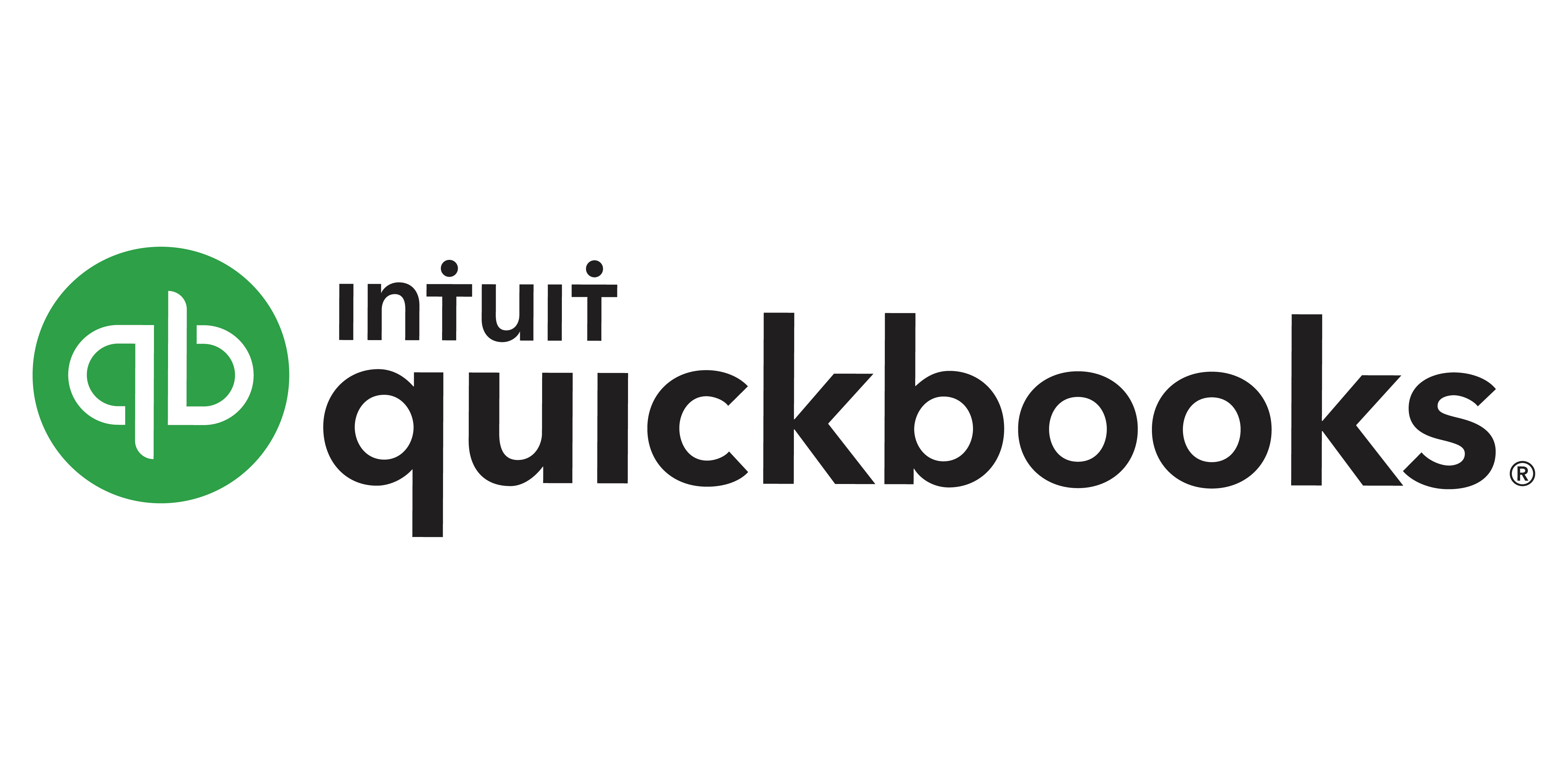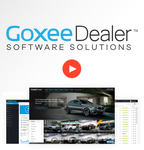Yes, most car dealer software is designed to be compatible with a variety of devices, including laptops, desktops, tablets, and smartphones, as well as operating systems such as Windows, iOS, and Android. This enables dealers to run their businesses on the road and guarantees that all team members have access to critical data and resources. However, it is always advisable to check the system requirements and compatibility before purchasing any software.
List of 20 Best Auto Dealer Software
Autodeals is a dealer management solution designed to streamline the operations of both new and used car dealerships. Our cloud-based software seamlessly integrates inventory, finance, CRM, and service management, resulting in reduced costs and impro...Read More Autodeals
Advent DMS is a digital sales solution for car dealerships. With our cutting-edge technology, you can optimize your dealerships operations and reduce transaction times by 50%. Our seamless integration allows for real-time funding and ensures complian...Read More Advent DMS
Dealer.com ControlCenter is a digital marketing software that transforms dealership performance through tailored content and real-time data. Designed to boost customer satisfaction and drive measurable results, this robust platform empowers dealershi...Read More Dealer.com ControlCenter
Evopos is a and flexible business management software designed for various industries. It offers essential tools like sales, inventory, CRM, eCommerce, and accounting, and easily integrates with multiple platforms. With its user-friendly interface, c...Read More Evopos
Virtual Yard - the ideal solution for streamlining all your yard management procedures. With its user-friendly interface and robust features, our software simplifies tasks, enhances productivity, and ensures seamless operations. Take your yard manage...Read More Virtual Yard
RouteOne is a software solution that streamlines finance and insurance procedures for dealerships. Our eContracting and menu solutions seamlessly connect dealers with financial partners, enhancing the overall customer experience and boosting sales ef...Read More RouteOne
DealersLink the dealership management software, is the go-to solution for car dealerships looking to optimize inventory procedures and boost profits. With a trusted reputation and a large customer base, DealersLink offers cutting-edge features for bo...Read More DealersLink
DIMS is a software platform engineered to improve efficiency and boost productivity. By automating redundant tasks and providing real-time data analytics, it enables businesses to streamline workflows and make informed decisions effortlessly. With it...Read More DIMS
Connected Dealer Services the software for automotive retail industries. Our advanced technology provides a multitude of advantages, including enhanced security and increased service retention, as well as efficient lot management. Our user-friendly s...Read More Connected Dealer Services
ARI the auto repair software crafted for mechanics. Simplify your garage operations with confidence, thanks to its extensive capabilities. ARI enables seamless management of your tasks and ensures a streamlined workflow. From inventory tracking to ap...Read More ARI (Auto Repair Software)
Urableis a business management software designed to streamline your operations. Easily manage quotes, invoices, and employee schedules with advanced features like automated messaging, secure payment processing, and route optimization. Access everythi...Read More Urable
QuickBooks Online, the premier accounting software for entrepreneurs and business owners. Streamline your financial management with its intuitive interface, top-notch security measures, and cutting-edge features such as Online bank connectivity and W...Read More QuickBooks Online
the Tekion Automotive Retail Cloud - a platform that simplifies every aspect of automotive retail. Utilizing advanced AI technology, it optimizes dealership profits and ensures secure data storage while offering unlimited data accessibility. Revoluti...Read More Tekion Automotive Retail Cloud
AutoRaptor CRM solution for your dealerships success. Created by industry professionals, this robust software streamlines lead management, boosts car sales, and enhances overall dealership performance. With its integrated analytics and user-friendly...Read More AutoRaptor CRM
Goxee Dealer is a software solution designed to boost car sales and simplify dealership operations. With cutting-edge features such as inventory management, CRM, AI, and digital marketing, this powerful tool helps dealers stay ahead of the competitio...Read More Goxee Dealer
Bodyshop Booster – solution for elevating your auto repair business! Our advanced software equips you with the tools to effectively communicate with customers, efficiently manage leads, and automate daily tasks for effortless client acquisitio...Read More Bodyshop Booster
VinSolutions Connect CRM solution for maximizing your sales potential. With our powerful virtual assistant and seamless integration, every interaction with your customers can result in a potential sale. Our CRM is designed to boost your teams efficie...Read More VinSolutions Connect CRM
Car Dealer Software is a solution that is transforming the automotive industry. Our software is equipped with state-of-the-art technology and a sleek interface to streamline dealership management, boost productivity, and exceed customer expectations...Read More Car Dealer Software
FastLot solution for auto dealerships seeking to streamline operations and boost sales. This cutting-edge platform offers seamless integration and powerful tools to revolutionize inventory management and customer engagement. By leveraging FastLot, de...Read More FastLot
ERA-IGNITE, the premier Retail Management System designed specifically for dealerships. Our advanced software streamlines operations, improves customer interactions, and boosts profitability for your dealership. With seamless integration and reliable...Read More ERA-IGNITE
Learn More About Auto Dealer Software
- What Is Auto Dealer Software?
- What Are The Recent Trends In Auto Dealer Software?
- Benefits Of Using Auto Dealer Software
- Important Factors To Consider While Purchasing Auto Dealer Software?
- What Are The Key Features To Look for In Auto Dealer Software?
- Why Do Businesses Need Auto Dealer Software?
- How Much Time Is Required To Implement Auto Dealer Software?
- What Is The Level Of Customization Available In Auto Dealer Software?
- Which Industries Can Benefit The Most from Auto Dealer Software?
- Conclusion
What Is Auto Dealer Software?
Auto Dealer Software is a digital solution specifically intended to help vehicle dealers streamline their business operations and improve their client experience. It is a complete system that combines inventory management, sales, customer relationship management, and finance on a single platform. With the growing demand for digital solutions in the automobile sector, auto dealer software has become a must-have for dealerships of all sizes.
It provides a variety of features and tools for automating and simplifying activities, allowing dealers to save time, cut costs, and make better business decisions. One of the key advantages of adopting car dealer software is its inventory management capability. It enables merchants to manage their inventory in real time, see available stock, and monitor sales performance.
This not only helps merchants keep track of their inventory, but it also improves the whole consumer experience by providing accurate and timely information. Another important feature of auto dealer software is its sales management capabilities. It allows dealers to produce and manage bids, track leads, and measure sales effectiveness. This feature helps dealers keep organized and manage their sales processes more efficiently, resulting in higher sales and money.
Auto dealer software also includes a customer relationship management (CRM) feature to help dealers establish excellent relationships with their customers. It enables dealers to monitor client interactions, manage leads, and send out tailored marketing efforts. This tool enables dealers to provide a tailored experience for their consumers, resulting in increased customer retention and loyalty.
Furthermore, auto dealer software provides finance and accounting solutions for managing the financial parts of the business, including invoicing, payment monitoring, and financial reporting. This allows dealers to keep their finances in order and make smarter decisions about their business operations.
What Are The Recent Trends In Auto Dealer Software?
In recent years, the automobile sector has seen a considerable shift toward digitalization, with auto dealer software becoming a vital tool for efficient and simplified dealership operations. With complex capabilities and continually growing technology, auto dealer software has altered how dealerships work, making it a must-have for staying competitive.
One of the most significant advances in car dealer software is the integration of artificial intelligence (AI) and machine learning (ML) capabilities. These technologies have transformed the automotive business by enabling dealerships to automate processes like inventory management, customer data collection, and lead creation. With AI and machine learning, dealerships can gain real-time insights and make data-driven choices, eventually boosting operational efficiency and customer experience.
Another trend in car dealer software is a focus on delivering a seamless omnichannel experience. Modern consumers want a consistent and tailored experience across all touchpoints, including in-store, online, and mobile apps. Auto dealer software enables businesses to unify all of these channels, resulting in a more seamless client experience and increased engagement and satisfaction.
Furthermore, as electric and self-driving vehicles become more prevalent, auto dealer software is expanding to meet the demands of this emerging market. These software systems now include capabilities like electric vehicle charging management and integration with self-driving technology, allowing dealerships to stay competitive in the fast changing automotive environment. Furthermore, cloud-based auto dealer software has grown in popularity in recent years due to its multiple benefits, such as accessibility, scalability, and cost effectiveness.
Cloud-based solutions reduce the need for physical servers and enable dealerships to access data and control operations from anywhere, making them a popular choice for modern dealerships. Finally, security is becoming a major concern in the car business, and auto dealer software companies are working to improve data protection. Many software solutions now include advanced security features such as data encryption, multi-factor authentication, and regular data backups to ensure the confidentiality of critical information.
Benefits Of Using Auto Dealer Software
Auto dealer software, often known as dealership management software (DMS), has become a vital tool for today's automotive industry. It provides a wide range of features and capabilities aimed at streamlining and improving many parts of a dealership's operations. Let's take a closer look at the advantages of adopting car dealer software and why it's an essential investment for any dealership.
1. Increased Efficiency and Productivity: One of the most important advantages of adopting car dealer software is increased efficiency and productivity. Manual chores that used to take a long time can now be accomplished fast and accurately because to capabilities like automated inventory management, sales tracking, and document generation. This not only saves time, but also allows employees to focus on more vital duties, resulting in enhanced production.
2. Improved Inventory Management: Auto dealer software provides real-time inventory tracking, enabling businesses to monitor inventory levels and make educated decisions. It also aids in the organization and categorization of inventory, making it easier to locate and present vehicles to prospective purchasers. With reliable inventory data at their fingertips, dealerships can make smarter purchase decisions, preventing vehicle overstocking or understocking.
3. Improved Client Experience: Proper car dealer software can significantly improve the client experience. Dealerships can use tools like customer relationship management (CRM) to track their interactions with customers, including prior purchases and preferences. This information can be used to provide more personalized and efficient services, resulting in increased client satisfaction and retention.
4. Streamlined Sales and Financing Procedures: Auto dealer software includes capabilities that help dealerships streamline their sales and financing procedures, making it easier to close deals swiftly. These solutions include digital document production, e-signature capabilities, and interfaces with third-party funding providers. This removes the need for human paperwork and accelerates the sales process, resulting in more client satisfaction and income.
5. Accurate Reporting and Data Analysis: Auto dealer software allows dealerships to generate accurate reports and analyze data to get insight into their operations. This information can help you discover areas for improvement, create sales goals, and make sound business decisions. It also aids in identifying the most profitable automobiles and altering inventory accordingly, hence increasing profitability.
Important Factors To Consider While Purchasing Auto Dealer Software?
When it comes to choosing auto dealer software, some elements must be carefully addressed in order to make the best possible option. After all, this software will be a critical tool for managing your dealership's operations, with a significant impact on your overall success.
Here are some crucial aspects to consider while selecting the best option for your dealership:
1. Specific Needs and Requirements: First and foremost, determine your dealership's specific needs and requirements. This will assist in determining the features and functionalities that are critical to your organization. Consider your dealership's size, the number of staff, and the vehicles you sell.
2. Usability: All members of your team should find the software straightforward to use and navigate. It should not require substantial training or technical understanding to function. A good piece of software should have a clean and user-friendly interface that simplifies chores and streamlines operations.
3. Integration: Look for software that interfaces with the systems and tools you already use. This ensures a smooth flow of data and information while eliminating the need for manual data entry, saving time and lowering the chance of errors.
4. Customer Help: The software vendor should give dependable and effective customer help. If you have any problems or inquiries, you should be able to contact a specialized support team. This will ensure that your dealership's activities are not disturbed and that any issues are remedied quickly.
5. Cost: As with any purchase, cost is a significant consideration. While you may be tempted to go with a lower-cost choice, keep in mind that quality should always come first. Investing in dependable and effective software may cost more upfront, but it will save you time, money, and aggravation in the long term.
6. Security: Because auto dealer software handles sensitive client information, it must be safe and compliant with all data protection rules. This will protect both your dealership and its customers.
7. Customization: Each dealership manages its business differently. Look for software that may be customized to meet your individual demands. This ensures that the software integrates seamlessly with your existing operations.
8. Scalability: Your dealership may grow and expand in the future, therefore it is critical to select software that can scale with it. This will save you the time and money of having to convert to new software as your dealership expands. When choosing auto dealer software, consider these key considerations to make an informed purchase that will benefit your dealership in the long run. Assess your specific needs, prioritize user-friendliness, integration, customer support, cost, security, customization and scalability, and choose a software that meets these requirements while also aligning with your budget. This will ensure that your dealership operates smoothly and efficiently, resulting in enhanced revenue and customer happiness.
What Are The Key Features To Look for In Auto Dealer Software?
When it comes to choosing the best auto dealer software, customers should examine a few essential characteristics to guarantee they get the most out of their investment.
The following are the main features to look for while shopping for auto dealer software:
1. Inventory Management: Being able to efficiently manage and track inventory is critical for every auto company. Look for software that allows you to track inventory in real time, receive automatic updates, and set alarms for low stock or aging automobiles. This will help you keep your inventory organized and up to date, saving you both time and money.
2. Customer Management: A good auto dealer software should have strong customer management features, such as the ability to store customer information and data, track customer interactions, and deliver targeted marketing campaigns. This will help you develop and maintain strong customer relationships.
3. Sales and Finance Tools: Look for software that automates the sales and financing processes by include features like an electronic F&I menu, credit application processing, and digital contracts. This will improve the efficiency and precision of your sales process, resulting in increased client happiness and profitability.
4. CRM Integration: CRM integration is a must-have feature in car dealer software. This enables seamless connection between your customer relationship management (CRM) and dealer software, making it easier to handle client information and interactions.
5. Reporting and Analytics: Access to real-time data and insights is essential for making sound business decisions. Look for software with customisable reporting and analytics options that can help you understand your sales, inventory, and financial performance.
6. Mobile Capabilities: With the proliferation of mobile technologies, it is critical to select software that provides mobile access. This enables you to access critical information and complete work from anywhere and at any time, boosting efficiency and production.
7. User-Friendly Interface: The car dealer software you choose should have an intuitive and easy-to-use interface for both your employees and customers. This saves time and reduces the learning curve for new users, allowing your staff to fully utilize the product. Consider these critical aspects to guarantee that you get the best car dealer software for your firm. Remember to consider your specific requirements and budget to locate the greatest fit for your company. With the appropriate software, you can streamline company processes, improve customer happiness, and boost revenues.
Why Do Businesses Need Auto Dealer Software?
Auto dealer software is a must-have for any automobile business. This robust software serves as a centralized hub for handling all elements of a dealership's operations, including inventory, sales, marketing, and customer support. In today's extremely competitive market, dealerships want a complete software solution that can streamline procedures, increase productivity, and improve overall performance.
One of the most important reasons firms require auto dealer software is to effectively manage their inventory. Keeping track of stock levels, price, and availability in dealerships can be difficult due to the wide range of automobiles and parts they deal with. However, with the help of auto dealer software, firms can simply manage their inventory in real time, track sales and purchase orders, and receive automated notifications when stock levels are low.
Another important feature of auto dealership software is its capacity to expedite the sales process. This program removes the need for manual paperwork and streamlines the sales process by allowing firms to access and update customer information, schedule appointments, and produce quotations and invoices all in one location. Automating these procedures allows dealerships to save time and speed up the sales process, resulting in improved customer satisfaction and potentially more sales.
Auto dealer software is also useful for marketing and customer relationship management. Businesses can use capabilities like as customer databases, email marketing, and social media integration to reach out to potential consumers, nurture leads, and create long-term connections with current customers. This, in turn, can result in repeat business, favorable word-of-mouth, and improved brand awareness.
Furthermore, auto dealer software has thorough and customized reporting functions that provide essential information about a dealership's performance and market trends. Businesses may monitor sales and inventory data, identify top-performing vehicles and salespeople, and make sound decisions based on precise data analysis.
How Much Time Is Required To Implement Auto Dealer Software?
The installation time for auto dealer software varies depending on a number of factors, including the software's complexity, the size of the dealership, and the level of customization necessary. The software might often take a few weeks to a few months to completely develop and integrate into the dealership's operations.
To begin, the process of adopting auto dealer software involves doing a thorough examination of the dealership's present processes and systems in order to find areas where the software may be integrated and maximized. This analysis could take a week or two to complete, depending on the size of the dealership and the volume of data to be analyzed. Next, the dealership must collaborate closely with the software vendor to configure and modify the software to fit their specific requirements.
This process can take anywhere between two and four weeks, depending on the software's complexity and level of customization necessary. Once the software has been designed and personalized, it must be installed and integrated with the dealership's current systems and databases. This can take an extra two to four weeks, depending on the software's complexity and the level of integration required.
Following the installation and integration phase, the dealership must train its personnel on how to use the software successfully. This training might last anywhere from a few days to a week, depending on the number of employees and their expertise with technology. Overall, the time necessary to develop auto dealer software ranges between 4 and 12 weeks, with larger and more complicated businesses taking longer. Dealerships must collaborate closely with their software vendor and have a thorough understanding of their individual requirements to guarantee a smooth and timely deployment process.
What Is The Level Of Customization Available In Auto Dealer Software?
Auto Dealer Software is a powerful instrument that can significantly improve the functioning of a vehicle dealership. One important characteristic that distinguishes it from other applications is its amount of customization. The level of customization offered by auto dealer software varies substantially based on the software and its capabilities. In this buyer's guide, we'll go over the various customization choices available for auto dealer software to help you make an informed decision.
The level of customization in car dealer software is classified into two categories: front-end and backend customization. Front-end customisation refers to software design components such as the user interface, website layout, and branding. Back-end customization, on the other hand, refers to the software's functionality and features that can be adjusted to meet the unique needs of a dealership.
When it comes to front-end customization, auto dealer software typically has a selection of website templates that may be personalized with your dealership's logo, color scheme, and other design components. Some software may also enable the building of a completely unique website with the assistance of their in-house design teams. This allows dealerships to develop a unique web presence that matches their brand.
Moving on to back-end customization, the available options vary widely depending on the software. However, most auto dealer software will have basic capabilities like lead management, inventory management, and CRM tools that may be tailored to a dealership's individual workflow and operations. Some software may also include advanced capabilities like automated sales processes, third-party connectors, and customisable reporting dashboards.
Additionally, certain car dealer software may allow you to design custom modules and plugins to increase the software's functionality. This is especially handy for dealerships with specialized requirements and want to add new features to their software. It is vital to remember that the level of customisation may incur additional costs, depending on the software. As a result, before making a decision, it is critical to conduct extensive research and understand the various customisation options as well as their associated expenses.
Which Industries Can Benefit The Most from Auto Dealer Software?
Auto dealer software is a powerful tool that can assist a wide range of industries. Its primary function is to streamline and manage auto dealerships' daily operations, resulting in enhanced efficiency, accuracy, and overall success. In this buyer's guide, we'll look at the primary industries that can gain the most from implementing car dealer software into their businesses.
1. Automobile dealerships: Unsurprisingly, integrating auto dealer software can provide significant benefits to the vehicle dealership market. This program provides dealerships with features for managing inventory, sales, and customer information all on one unified platform. This not only improves productivity and accuracy, but also the whole client experience. Auto dealer software, with capabilities such as car information management, real-time sales tracking, and customer relationship management, helps dealerships stay competitive and profitable.
2. Auto Repair Shops: Aside from car sales, auto dealer software can also help automotive repair firms. This program enables the efficient scheduling and tracking of repair and maintenance services. It also allows businesses to manage their inventory, order parts, and track spending, resulting in better inventory management and cost-effectiveness. Furthermore, the software's customer management feature helps repair firms keep organized and build great client connections.
3. Auto Parts Retailers: car parts stores can also benefit from car dealer software. With capabilities like inventory monitoring, customer management, and custom reporting, this software may assist merchants in staying organized and providing exceptional customer service. Furthermore, the parts ordering and tracking tool enables effective administration of orders and deliveries, lowering the chance of errors and delays.
4. Auto Rental Companies: Auto dealer software is a must-have tool for car rental firms. It streamlines the entire rental process, from reservations and payment to car assignment and return. With the capacity to track vehicle availability and condition, this software assists rental organizations in managing their operations and providing a positive client experience.
5. Fleet Management Companies: Fleet management organizations that manage a big number of vehicles can profit from adopting auto dealer software. This program enables effective fleet tracking, vehicle maintenance scheduling, and fuel usage monitoring, thereby lowering costs and increasing efficiency.
Conclusion
In conclusion, choosing the right auto dealer software is crucial for the success of any dealership. It not only streamlines operations and increases efficiency, but also provides valuable insights and helps in making informed decisions. The first step in selecting the right software is to assess your dealership's specific needs and budget. This will help narrow down the options and ensure that the software meets all the necessary requirements.
Next, consider the features and functionalities offered by the software, such as inventory management, customer relationship management, and reporting tools. It is essential to choose a comprehensive software that covers all aspects of dealership operations. Another important aspect to consider is the ease of use and integration with other systems.
A user-friendly interface and seamless integration with existing systems will save time and effort, and prevent any compatibility issues. Furthermore, it is crucial to ensure that the software provider offers reliable customer support and regular updates to keep your operations running smoothly and up-to-date. It is also recommended to read reviews and get feedback from other dealerships using the software to get a better understanding of its performance and customer satisfaction.
Last but not least, always opt for a reputable and established software provider with a track record of success in the industry. This will ensure a smoother implementation process and long-term reliability of the software. By following these guidelines and considerations, you can confidently choose the best auto dealer software to support your dealership's growth and success. Remember, investing in the right software now will save you time, money, and headaches in the long run.
Auto Dealer Software FAQ's
Can Auto Dealer Software Be Accessed Across Multiple Devices and Platforms?
Is Auto Dealer Software Future-Proof and Adaptable to Emerging Technologies Like Ai, Blockchain or Iot?
Auto Dealer Software is meant to be future-proof and adaptable to upcoming technologies like as artificial intelligence, blockchain, and the Internet of Things. As technology progresses and is more fully integrated into the automobile industry, car dealer software evolves to meet shifting demands.
Auto dealer software includes features such as AI-powered chatbots, blockchain for safe transactions, and IoT connection for real-time data analysis, allowing dealers to stay ahead of the competition and create a smooth experience for their consumers. Rest certain that investing in auto dealer software entails staying ahead of the technological curve.
Is There A Free Trial Offered to Assess Auto Dealer Software Before Committing?
Most car dealer software suppliers provide a free trial period so that potential customers can evaluate the product before committing. This allows dealerships to evaluate the software's features, operation, and user interface to ensure that it matches their individual needs and preferences. Before making a purchase, it is usually recommended that you use the free trial to check that the program is a good fit for your dealership.
Does Auto Dealer Software Offer Data Security Features And Meet Regulatory Compliance Standards?
Auto dealer software often includes data security features such as encryption, safe data storage, and user access controls to protect sensitive customer information. Furthermore, many auto dealer software systems are built to comply with regulatory requirements, such as the General Data Protection Regulation (GDPR) and the California Consumer Privacy Act (CCPA). This ensures that dealerships can securely handle and process consumer data while adhering to numerous rules and regulations.
Can Auto Dealer Software Integrate Seamlessly With Existing Tools and Platforms?
Yes, most current auto dealer software is intended to work easily with existing tools and platforms. This means it can simply communicate and share data with other dealership software applications including accounting, inventory management, and customer relationship management. This connection streamlines operations and improves overall productivity, allowing dealerships to focus on providing excellent customer service and increasing sales.










-logo.png)











